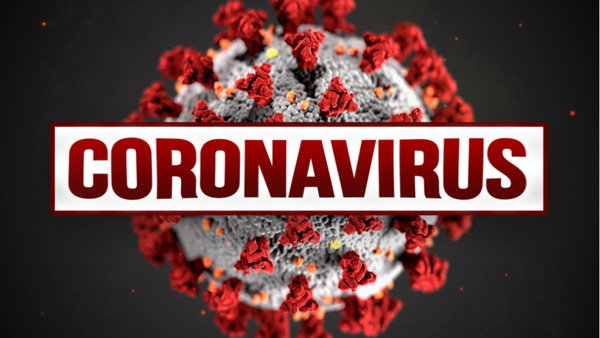On the occasion of Lunar New Year 2020, a new, highly contagious disease caused by the Novel Coronavirus (called 2019 – nCoV) has erupted in China. Until now, this disease has spread all over 26 countries around the world and made the entire community bewildered and worried. Vietnam is one of the countries that have people infected by 2019- nCoV and the number of people who tested positive for 2019- nCoV is increasing. Thus, on February 01st 2020, Prime Minister signed Decision No.173/QD-TTg officially announcing acute respiratory infection due to the new strain of Coronavirus. What are the legal bases of this Decision and what are the legal consequences of the epidemic announcement? This article would help answer these questions.
1. Legal bases for the epidemic announcement
To learn about the epidemic announcement, firstly we should understand the definition of the epidemic under the laws. According to Clause 13 Article 2 of the Law on prevention and control of infectious diseases 2007, epidemic means the occurrence of an infectious disease in a number of persons exceeding the normal projected number of persons during a particular period and in a given area.
Pursuant to Article 38 of the Law on prevention and control of infectious diseases 2007 and Clause 1 Article 2 of Decision No.02/2016/QD-TTg “Provisions on conditions for announcing epidemic, announcing epidemic termination”, condition to announcing epidemics for class-A infectious diseases is that there is at least one person is diagnosed to be infected. Meanwhile, an acute respiratory infection caused by a virus is one of the class-A infectious diseases specified at Point a Clause 1 Article 3 of the Law on prevention and control of infectious diseases 2007.
With the above provisions, state agencies – Ministry of Health and the Prime Minister completely have legal bases for announcing epidemic after verifying suspected cases of acute respiratory infection caused by a new strain of Coronavirus.
About the competence, the Prime Minister announces epidemics at the request of the Minister of Health for class-A infectious diseases when the disease quickly spread from one province to another, seriously affecting human life and health.
In reality, the epidemic presents its complicate when infected people go through many areas and contact many people before they are isolated and treated. This leads to panic nationwide and suspected cases of an infectious disease due to Coronavirus appear in many provinces and cities in Vietnam. Therefore, the Decision of the Prime Minister for announcing the epidemic is legal and grounded.
2. Legal consequences of the epidemic announcement
Pursuant to Article 46 of the Law on prevention and control of infectious diseases, after announcing epidemic, an Anti-epidemic steering committee will be established to conduct anti-epidemic measures and overcoming epidemic consequences, render first aid, provide medical treatment and deal with epidemic foci. Accordingly, each individual and organization has their duties and responsibilities in anti-epidemic as follows:
- Persons suffering from the disease or persons detecting infection or suspected infection cases shall report it to the nearest health agencies within 24 hours after detecting the epidemic.
- Anti-epidemic steering committee shall direct for rendering first aid and providing medical examination and treatment for persons suffering from and suspected of suffering from an epidemic disease; isolate persons suffering from epidemic disease, persons suspected of suffering from epidemic disease, persons carrying epidemic pathogens, persons who have been in contact with pathogens of epidemic disease.
- Mobile anti-epidemic teams shall take sanitation, disinfection, and sterilization measures when Anti-epidemic steering committee requests.
- Persons participating in anti-epidemic activities and persons at risk of contracting epidemic disease shall take personal protection measures.
- Especially be noted that, in necessary situation, competent state agencies have the right to: (i) suspending the operation of public food and drink establishments which have risk to transmit the epidemic disease in epidemic zones; (ii) imposing a ban on trading in and consumption of foods which have been identified to be vectors by competent health agencies; and (iii) prohibiting mass gatherings or suspending activities and services in public places of epidemic zones.
- In case an epidemic rapidly spreads on a wide area, seriously threatens human health and life, and the national socio-economic situation, the National Assembly Standing Committee shall issue a Resolution to declare a state of emergency at the request of the Prime Minister.
Announcing an epidemic is one of the measures to raise awareness of individuals and organizations when an infectious disease occurs. It also propagates and educates individuals, organizations to have knowledge of effective epidemic prevention. Nowadays, the epidemic still has complicated movements, therefore, individuals, organizations should comply with directions of competent agencies to protect themselves as well as avoid infecting other people. Through the above analysis, we do hope that this article is useful for you. Shall you need help, please contact us here or through the link as below.
Best regards.
You may need Is debt collection of enterprises easy or difficult?
Join Fanpage Dispute Settlement And Debt Collection to have more useful legal knowledge.
TNTP & Associates International Law Firm
Lawyer Nguyen Thanh Ha
Email: ha.nguyen@tntplaw.com







